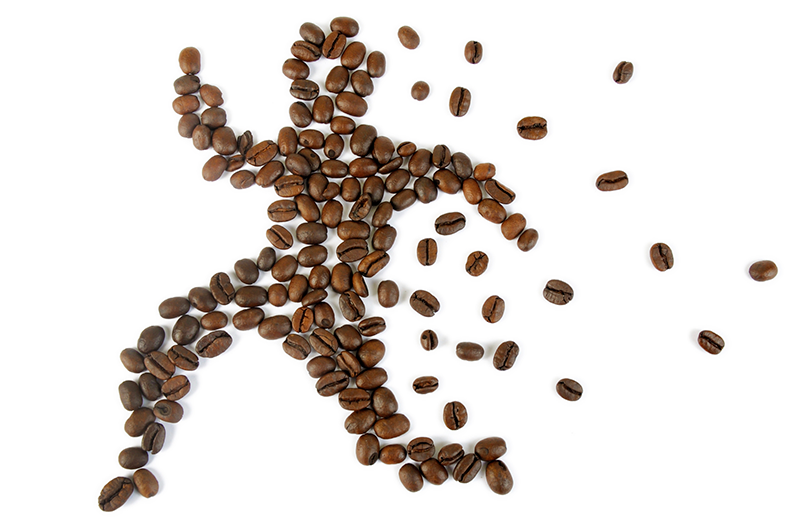Caffeine is a stimulant that affects the Central Nervous System and a diuretic substance that helps rid your body of fluids. It comes from the leaves, seeds, and fruits of many plants including:
- Tea leaves
- Kola nuts
- Cocoa beans
- Coffee beans
It can also be found in chocolate products and some soft drinks and is often added to many over-the-counter medicines such as pain relievers and cold medicines.
Never Miss a Beat!
Subscribe to Our HealthBeat Newsletter!
Thank you for subscribing!
You can now select the specific newsletters you'd like to receive.
You are already subscribed.
Subscribe to more newsletters in our email preference center.
Sorry, an error occurred. Please try again later.
Get Healthy Tips Sent to Your Phone!
How Does Caffeine Affect the Body?
It quickly passes into the central nervous system and eventually passes out of the body in the urine. Normally, half of the amount consumed leaves the body within five to seven hours.
Its effects range from a mild increase in alertness to anxiety, tension, and irritability. There is no proof that it improves creativity or work performance or that it increases energy levels. In fact, many researchers believe that too much interferes with work performance.
Is it safe in small amounts?
Modest amounts have not been associated with any health risks. You can safely consume about 250 mg each day. This is equal to three 8-ounce cups of coffee, two 8-ounce chocolate bars, or about 5 cups of tea.
What is caffeine sensitivity?
Some people have unwanted, or negative, side effects when they have a certain amount of it. This is called “caffeine sensitivity.” Negative side effects can include:
- Increased heart rate
- Nausea
- Vomiting
- Restlessness
- Anxiety
- Depression
- Tremors
- Disturbed sleeping patterns
Who should avoid it?
- Infants and children
Infants should not be given drinks that contain it. Children may be more likely to have caffeine sensitivity because of their smaller body size. Limit the amount in your child’s diet. If your child has too many caffeinated drinks, he or she may be missing out on other more nutritional drinks, like milk or juice. - Pregnant women and nursing mothers
Most doctors either recommend that pregnant women not use caffeine or limit its usage. Nursing mothers also should not have too much. It could interfere with the baby’s sleep since it crosses into the mother’s milk. - People with heart problems
It can cause irregular heartbeats in some people. Therefore, many doctors recommend eliminating or restricting caffeine for patients with heart problems, high blood pressure, or a history of irregular heartbeats.
Cut back slowly
If you want to cut down on the amount in your diet, try cutting back slowly to reduce the side effects.
People who consume large amounts on a regular basis may get mild headaches and feel tired if they stop having it all at once.
Have a glass of water in between each cup of coffee or soda. Mix a half of a cup of decaf with a half of a cup of regular coffee. Gradually increase the amount of decaf and decrease the regular until you are only drinking decaf.
Many people think they need it to wake up in the morning. If you get a good night’s sleep, you’ll feel rested when you get up, and you’ll be able to skip the caffeine.
About Digestive Disorders
UPMC Digestive Health Care cares for a wide range of gastrointestinal (GI) conditions and diseases, from diagnosis to treatment. Whether your digestive condition is common or complicated, our experts can help. Upon referral from your physician, we coordinate your testing and treatment. If you have a complicated condition, we can refer you to one of UPMC’s digestive health centers of excellence. Find a GI doctor near you.
